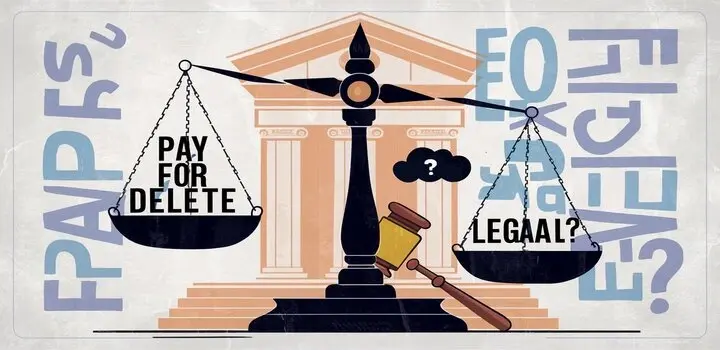-
Posted on: 24 Jul 2024

-
Losing a spouse is one of the most profoundly painful experiences a person can endure. The emotional toll is immense, and simultaneously, practical matters demand immediate attention. In the midst of such overwhelming grief, it’s easy to make mistakes – mistakes that can have significant financial, legal, and emotional consequences. This guide outlines crucial "don'ts" to help you navigate this difficult period with as much grace and clarity as possible.
Understanding the Initial Shock and Grief
Before diving into the practicalities, it's vital to acknowledge the nature of grief. Grief isn’t linear; it ebbs and flows, presenting differently each day. Allow yourself to feel the pain, sadness, anger, and confusion. Suppressing emotions can lead to more significant problems down the line. Remember that seeking professional help is a sign of strength, not weakness. A therapist specializing in grief can provide invaluable support and coping strategies.
Financial Mistakes to Avoid
One of the most common areas where mistakes are made after a spouse's death is financial management. It's crucial to proceed with caution and avoid impulsive decisions.
1. Don’t Make Hasty Investment Decisions
Resist the urge to radically alter your investment portfolio immediately. While it’s essential to eventually review and adjust your financial plan, making knee-jerk reactions based on emotional distress is rarely a good idea. Consult with a financial advisor before making any significant changes. They can help you assess your situation objectively and develop a strategy that aligns with your long-term goals.
2. Don’t Ignore Legal and Financial Documents
While the thought of dealing with paperwork may be overwhelming, it’s crucial to address essential legal and financial documents promptly. These include:
- Will and Trust Documents: Locate and review these documents to understand your inheritance rights and responsibilities.
- Life Insurance Policies: File claims for life insurance benefits.
- Bank Accounts and Investments: Notify banks and investment firms of the death and understand the account ownership structure.
- Retirement Accounts: Review beneficiary designations on retirement accounts such as 401(k)s and IRAs.
- Debts and Liabilities: Understand the debts of the deceased and your potential liability.
Ignoring these documents can lead to missed deadlines, lost benefits, and unnecessary legal complications. Engage with an attorney to guide you through probate and estate administration processes.
3. Don’t Overspend or Underestimate Future Expenses
Some individuals experience a period of reckless spending after a spouse's death, attempting to fill the void with material possessions. Conversely, others become overly frugal, fearing financial instability. Neither extreme is healthy. Create a realistic budget that accounts for your changed circumstances, including potential loss of income and increased expenses. Consult with a financial planner to project future income and expenses.
4. Don’t Fall Prey to Scams
Unfortunately, scammers often target vulnerable individuals, including those who have recently lost a loved one. Be extremely cautious of unsolicited offers, phone calls, or emails requesting personal information or money. Never give out your Social Security number, bank account details, or other sensitive information to unknown individuals. Verify the legitimacy of any organization before providing any information. Report suspicious activity to the authorities.
5. Don’t Forget About Taxes
Filing taxes after a spouse's death can be complex. There are specific tax implications related to inheritance, life insurance proceeds, and retirement accounts. Consult with a tax professional to ensure you comply with all applicable laws and take advantage of available deductions and credits. Remember, improper tax planning can lead to penalties and missed opportunities to minimize your tax burden.
Legal Mistakes to Avoid
Navigating the legal aspects of a spouse’s death can be daunting. Proper legal guidance is crucial to protect your rights and interests.
1. Don’t Handle Probate Alone
Probate is the legal process of validating a will and distributing assets. It can be complex and time-consuming, involving court filings, notifications to creditors, and asset valuation. While it’s possible to navigate probate on your own, it’s generally advisable to seek legal assistance from a probate attorney. They can guide you through the process, ensure compliance with legal requirements, and protect your rights as an heir or beneficiary.
2. Don’t Delay in Contacting an Attorney
The sooner you consult with an attorney, the better. An attorney can advise you on your legal rights and obligations, help you navigate the probate process, and assist with estate planning. Delaying legal advice can lead to missed deadlines, lost opportunities, and unnecessary legal complications.
3. Don’t Sign Anything Without Understanding It
Carefully review all legal documents before signing them. If you don’t understand something, ask for clarification from your attorney. Never feel pressured to sign something if you’re unsure about its implications. Seek independent legal advice if you have any doubts or concerns.
4. Don't Neglect Estate Planning Updates
Your own estate plan likely named your spouse as a beneficiary, executor, or trustee. After their passing, these documents need immediate review and amendment to reflect your changed circumstances. Failing to update your will, trusts, power of attorney, and healthcare directive could lead to unintended consequences regarding your assets and healthcare decisions.
Emotional Mistakes to Avoid
The emotional toll of losing a spouse is immense, and it's crucial to prioritize your mental and emotional well-being. Avoid these emotional pitfalls:
1. Don’t Isolate Yourself
Grief can be isolating, but it’s essential to maintain connections with friends, family, and support groups. Lean on your loved ones for emotional support and understanding. Sharing your feelings and experiences can help you process your grief and prevent feelings of loneliness and depression. Don't be afraid to reach out and ask for help.
2. Don’t Suppress Your Emotions
Allow yourself to feel your emotions fully and without judgment. Grief is a natural and healthy response to loss. Suppressing your emotions can lead to physical and mental health problems in the long run. Find healthy ways to express your emotions, such as journaling, talking to a therapist, or engaging in creative activities.
3. Don’t Make Major Life Decisions Immediately
Avoid making significant life decisions, such as selling your house, changing jobs, or entering into a new relationship, immediately after your spouse’s death. Your judgment may be clouded by grief, and you may later regret your decisions. Give yourself time to heal and process your emotions before making any major changes.
4. Don’t Compare Your Grief to Others’
Grief is a personal and unique experience. Everyone grieves differently and at their own pace. Don’t compare your grief to others’ or feel pressured to grieve in a certain way. Honor your own feelings and needs. What works for one person may not work for another.
5. Don’t Neglect Your Physical Health
Grief can take a toll on your physical health. Make sure to eat nutritious meals, get enough sleep, and engage in regular exercise. Taking care of your physical health can help you cope with the emotional challenges of grief. Consider consulting with a doctor or nutritionist to address any specific health concerns.
6. Don't Rush the Healing Process
There's no set timeline for grieving. People move through grief at their own pace. Don't allow well-meaning friends or family to pressure you into "getting over it" before you're ready. Acknowledge your feelings, allow yourself to experience them, and seek support when you need it. Rushing the process can lead to unresolved grief issues in the future.
7. Don't be Afraid to Seek Professional Help
Grief counseling or therapy can be incredibly beneficial, especially if you're struggling to cope. A therapist can provide you with tools and strategies to navigate your grief, process your emotions, and develop healthy coping mechanisms. Don't hesitate to reach out to a mental health professional if you feel overwhelmed or stuck in your grief.
Practical Mistakes to Avoid
Beyond financial and emotional considerations, several practical matters require attention. Avoiding these mistakes can save you time, money, and stress.
1. Don’t Delay in Notifying Key Institutions
Promptly notify key institutions of your spouse’s death. This includes:
- Social Security Administration: To stop benefit payments.
- Insurance Companies: To file claims for life insurance and other policies.
- Banks and Credit Card Companies: To close accounts and manage debts.
- Utilities: To transfer or close accounts.
- Post Office: To forward mail.
Delaying these notifications can lead to administrative complications and potential financial losses.
2. Don’t Throw Away Important Documents
Keep all important documents related to your spouse’s estate, including:
- Death Certificate: You will need multiple copies for various legal and financial purposes.
- Will and Trust Documents: Essential for understanding inheritance rights.
- Financial Statements: For assessing assets and liabilities.
- Insurance Policies: For filing claims.
- Tax Returns: For preparing estate tax returns.
Store these documents in a safe and organized place. Consult with an attorney or financial advisor to determine which documents you need to retain permanently.
3. Don’t Neglect Household Maintenance
Maintaining your home is crucial, even in the midst of grief. Neglecting household tasks can lead to property damage and safety hazards. Consider hiring someone to help with tasks such as lawn care, snow removal, and home repairs. Addressing these matters promptly can prevent more significant problems down the line.
4. Don't Cancel Services Immediately
While you will eventually need to cancel services (cable, subscriptions, etc.), avoid doing it immediately. Some services might be necessary for managing the estate or providing comfort (e.g., streaming services for entertainment). Create a list of all services and subscriptions and then gradually cancel them as needed, starting with the least essential.
5. Don't Forget About Digital Assets
In today's digital age, it's crucial to address your spouse's digital assets, including online accounts, email addresses, social media profiles, and digital wallets. Determine how to access these accounts (if possible) and follow the appropriate procedures for closing them or transferring ownership. Consider using a digital legacy planning service to help you manage this process.
Moving Forward With Compassion and Self-Care
Losing a spouse is a life-altering event. While avoiding these mistakes can help you navigate the practical and legal aspects of your loss, remember that healing takes time. Be patient with yourself, prioritize self-care, and seek support from loved ones and professionals. With time, compassion, and the right guidance, you can find a path forward towards healing and rebuilding your life.











